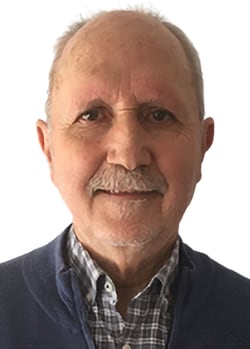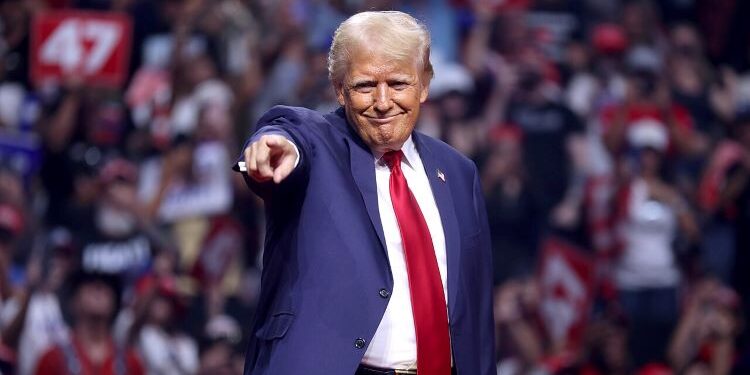The American president’s governing methods expose too many collective values. His style, unusual from the ground up, permeates other leaders. The messages that both sides post on social media often hide the truth, depending on when they are said and the issue they address; other times, they embellish them with outbursts, which is worse. What is evident is that the world is trembling, from north to south, and from east to west. What is happening right now seems like yesterday, and perhaps tomorrow will be gone. The emotional darkness is becoming collective and deepening. To strip it away from the excessive rhetoric, we must resort to a wide variety of ethical arguments and moral poetics. So much so that if you listen to or read the media, it is not unusual to wonder if history begins now. Will this be year zero of what will come next?
It seems that exercising power is sometimes seen as a stage of humiliation. That style of ritual iniquity that autocrats (Mao, Stalin, or Hitler would be excellent representatives) have long used to exalt themselves and amuse themselves, and in the process intimidate everyone else, reappears in current rulers. They find it funny and it’s supposed to boost their egos; meanwhile, their applauders give them the reverent wave. But even these are not spared from momentary or permanent degradation. What’s worse, many sympathetic media outlets are responsible for publishing their witticisms or misdeeds. The international press reports on them in newspaper archives around the world.
Let’s take the example of climate change. Due to the decomposition of some current rulers—the American president serves as an example, and others would also do so—it encourages respiratory distress among the world’s population; then come illness and death. Of course, to sustain their witticisms, they have social media at their disposal, spreading falsehoods like wildfire. At this point, we wonder if contemptuous ways have not increased in the management of states, and of what we could generically call a shared world. Every time we think about crooked ways, we begin to question whether that is democracy. In this disordered world, credible politicians and leaders are more necessary than ever; who doesn’t remember the Uruguayan Pepe Mújica?
One could say that today’s world is governed by international disorder, something that is not new. It has been widespread for years. Following the Paris Agreement on states’ climate action, many have done nothing but devalue the agreements and commitments signed. Meanwhile, the multilateral desires that dominate us lead us down paths that foster an uncertain and fearful multipolarity; not for them, of course. The climate emergency, no longer just change but also crisis, comes at the same time as several human rights are being disregarded. Autocratic regimes/parties base their discourse on environmental denialism, while expanding a religious presence that questions civil secularism—we are referring here to democracies, not dictatorships—and engage us in a continuous struggle to reconfigure the religious nature of the State.
Disregarding those who suffer the greatest vital rigors of climate change, while bearing the least share of blame, demonstrates a lack of any humanitarian compassion. Moreover, the principles and demands of sustainability are de facto rejected; the social responsibility of large corporations and large corporations is fading. If we take all these maneuvers together, we cannot help but exclaim: a reactionary regression of moral values and the social achievements of modernity is spreading like a fluid oil slick. Not only that, but reviving global ethics (the good practices of those in power) seems a practically impossible task. Risks that, in the globalized world of interests and disasters, push the poorest, both countries and individuals, to the brink. A tragedy that should have little to do with spectacle or charlatanism.
The political circus insists on pointing to migration as the source of the imbalance in the host countries. The Trump brand is nothing new. Quietly or ostentatiously—including ceremonies—many countries have already attacked not only the unequal within their borders, but also shamelessly attack those arriving from outside. They should listen to Manu Chao’s song “Clandestino” often. Let’s see if it stirs some compensatory thinking neurons in them. Selective indignation, in the words of Dutch sociologist Hein de Haas, is evident in “the immigration of low-skilled workers from Morocco, Latin America, and other non-European countries is often presented as undesirable; when it is an open secret that they actually perform all kinds of ‘essential’ jobs in sectors such as agriculture, construction, domestic services, and caregiving.” We add: something that the locals despise.
We read that “show politics” has been the norm in Argentina for decades. In Europe, we’ve been witnessing similar episodes in too many countries, so much so that it’s worth highlighting those where this isn’t the case. “Politics turned into a circus” could be a widely watched series on television platforms. Because such politics is an intoxication of reality, a subjection of citizens to captivity, both physically and emotionally. A good example is what was said during the last pandemic, about which even the emblem of each place had an opinion. The Spanish Parliament has joined this trend.
The information mission of the media has changed. It has adopted sound-show formats that have ended up making political news less objective and more open to debate; truths cannot be agreed upon, even if they are supported by science or the harsh facts. In this formulation—Manichean or simply concerned with capturing audiences—the spectacle of the debate prevails between characters who divide up the roles for or against. That is, media commentators or commentators appointed as spokespersons for public opinion, well-trained as television personalities in the art of dialectical combat, become professionals in the rude and brief dispute. This is how Ethic captured it.
Those of us who are nostalgic without the power to manipulate remember that wonderful program on Spanish public television called “La Clave,” which, as its name indicates, provided us with keys (mental tools) to construct our reasoned thinking. Nowadays, we find little of that; so it should not surprise us that information—with exceptions—has become “infra-information and superficial entertainment.”
Ultimately, the actions of those in power should not differ from what “Justice” dictates. They should be subject to judicial scrutiny, but we cannot be sure. It is said that the courts also seem to succumb to the intimidation of the media that generates doubts, even paying too much attention to what spreads through the internet. It’s damaging to coexistence to often hear that this or that case will be judged by someone “conservative or progressive.” Justice with a surname of ethics? But beware, if the judiciary also gives in, it will provoke an existential catastrophe for European democracies. Not even the Hague Tribunal can save us from it.
But we must always keep the light of hope burning: good men and women walk in the political world. There are news stories—generally broadcast by media independent of the powers that be—that keep us believing that good judicial practice can exist, such that it encourages those in power to step outside the spectacle.
 Carmelo Marcén Albero
Carmelo Marcén Albero
Ecosocial researcher and analyst at the Alternativas Foundation
Teacher and PhD in Geography. He has taught Primary and Secondary Education, and Teacher Training. Author of articles and research on the environment and education published in specialized journals such as Cuadernos de Pedagogía, Investigación en la Escuela, and Aula de Innovación Educativa.
Winner of the National “Education and Society” Award in 1992 and 1993 for his teaching proposals focused on rivers and landscapes. He has published several books on these topics. He is a research associate at the Department of Geography at the University of Zaragoza and the Alternativas Foundation in Madrid. He is a member of the Board of Ecodes (Ecology and Development Foundation).







